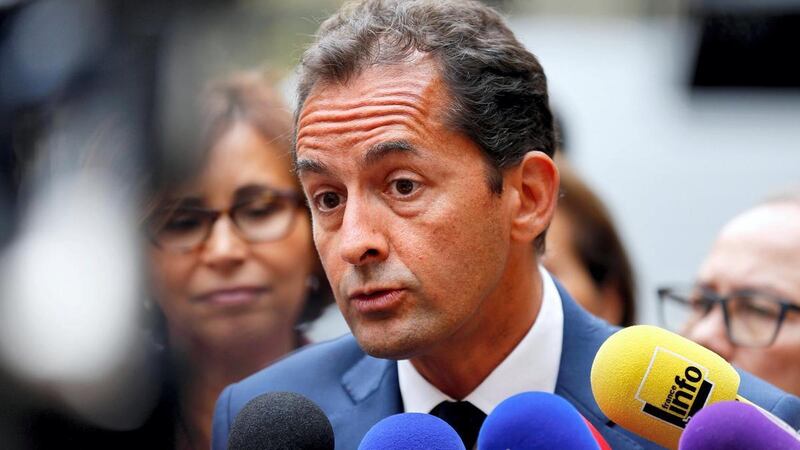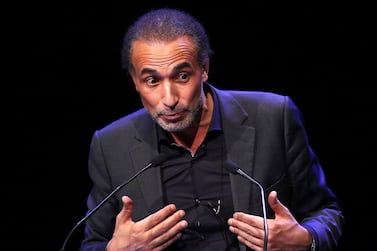A new French Muslim association is pressing ahead with plans to finance the training and payment of imams despite silence from President Emmanuel Macron on his long-promised initiative for the organisation of Islam in France.
Analysts believe the president shelved his intervention because of the crisis provoked by the Gilets Jaunes, or yellow vest, protests that disrupted the country for seven months.
Even now, when Mr Macron appears to have worn down the protesters, there is no word from the Elysee Palace on when — or indeed whether — he will finally reveal his proposals.
The Muslim Association for a French Islam was launched in January by Hakim El Karoui, a French-Tunisian former banker, now an author and a nephew of a former Tunisian prime minister, Hamed Karoui. Its ambitious twin aims are to unite French Muslims where other supposedly representative bodies have failed and combat extremism.
Mr El Karoui wants the association to raise funds from small levies on halal purchases and the organisation of Hajj travel packages.
This autumn, he plans to visit the UAE, hoping to meet officials and persuade them they can help foster a modern, integrated practice of Islam in France.
“I believe that the Emirates have a major role to play,” Mr El Karoui told The National. “They have never sought to contribute to the spread of political Islam. Secondly, they are in the forefront of the fight against this ideology.”
He said one part of his mission would be to explain the “situation of Islam in France” and in particular the role of political Islam and the Muslim Brotherhood, listed by the UAE and several other countries as a terrorist organisation.
He also believes the UAE could contribute to an ideological counter-offensive to extremism by working on a “theological renewal”.
And he will present UAE officials with his 700-page study, The Factory of Islamism, published last year by the Paris-based think tank Institut Montaigne, where he is a senior fellow. He describes this as his analysis of “the fabrication of the Islamist political ideology with its wheels, organisations, leaders, financing, media, social networks”.
Mr El Karoui estimates that France needs about 1,000 professional imams “entirely dedicated to their profession”. Among those practising now, he said, a clear majority had diplomas but only a minority possessed degrees in theology or religious sciences.
With an eventual annual budget of €50 million (Dh205m), he calculates that AMIF could ensure all were salaried.
But this level of funding would come from donations as AMIF's influence grew. For now, he sees an opportunity to raise €5-7m, a year from halal and Hajj, while training the first batch of 60 to 80 students would probably cost €1m a year.
He said the training and qualification of imams could be structured to respect “diversity of belief”, aimed at building a network of high-quality imams rather than imposing a single interpretation of Islam. But it would guarantee that the teaching and the transmitted principles “respect French republican values”.
Mr El Karoui previously told The National his objective is to encourage a "serene integration of Islam in France", countering a discourse propagated by "Salafists and the Muslim Brotherhood".
Yet his new association is not untouched by suspicion of Muslim Brotherhood influence.
Guy Milliere, a neoconservative French academic and author based partly in the United States, told The National the main leaders of AMIF are — or were until recently — its members.
Mr El Karoui dismissed his claims as “just a joke”. He said a handful of board members had historic ties to the Brotherhood or its offshoots but had no lingering connection and were fully committed to promoting an Islam compatible with secular French society.
Tareq Oubrou, a prominent imam from the south-western city of Bordeaux, is the head of AMIF’s religious sister body.
Dr Milliere says the imam belonged until May 2018 to Muslims of France, which has sought to distance itself from the Muslim Brotherhood since its creation in 2017, but has struggled to shake off the legacy of ties between the brotherhood and its predecessor, the Union of Islamic Organisations of France.
Today, Mr Oubrou is widely known in France to have developed from more conservative leanings to strong advocacy of a liberal interpretation of Islam and strong opposition to radicalisation. He has publicly repudiated the Brotherhood.
ISIS issued a fatwa against him in 2016, calling for his murder as an “apostate” who had betrayed the terrorists’ vision of Islam.
Mr El Karoui said it was absurd to dredge up long-discarded affiliations of theologians now known to support integration. He said the greater modern threat was from the minority of younger Muslims who rejected the moderate views of such preachers and promoted a separatist ideology.
According to Thomas Guenole, a left-wing academic and commentator, the so-called Islamist menace in France has been greatly overstated.
He said research had shown about half of French Muslims “don’t really care about religion on a daily basis”. About a quarter were practising worshippers but broadly put integration and acceptance of French values ahead of religious principles.
"The remaining quarter tends to be poorer, less educated and employed but disapproves of republican values," he told The National. "But what it shows is that 75 per cent are either not really religious or are religious but also integrated."
Mr Guenole said that for a French Muslim body to be truly representative and effective, it had to demonstrate independence from both the government and foreign countries that have traditionally funded mosque building. He sees positive aspects of AMIF but questions its long-term idea of a appointing or electing a grand imam.
Despite their differences, Mr El Karoui, Mr Guenole and Dr Milliere all agreed that Mr Macron’s plans to reveal his blueprint for Islam in France had been sidelined by more pressing domestic issues.
“Mr Macron did not want to go too fast,” said Dr Milliere, who has written at the right-wing Gatestone Institute of France being “a country adrift [where] unrest and lawlessness continue to gain ground and disorder has become part of daily life”.
“He knew reorganising Islam in France would be controversial.
“I heard he wanted to act and take decisions in November 2018, but the yellow vest uprising changed his plans. For more than six months the main aim of Macron was to crush the uprising and to win the European elections. He was able to crush the uprising. He did not win the European elections but he was not severely defeated, so he thinks he can go forward.”
Nineteen months after the initiative was first mentioned, Dr Milliere’s comment raises the question of whether it will ever be seen. Mr El Karoui suspects it will; “it would be bad for him campaigning [for re-election] in 2022 to have promised a major announcement and delivered nothing”.








